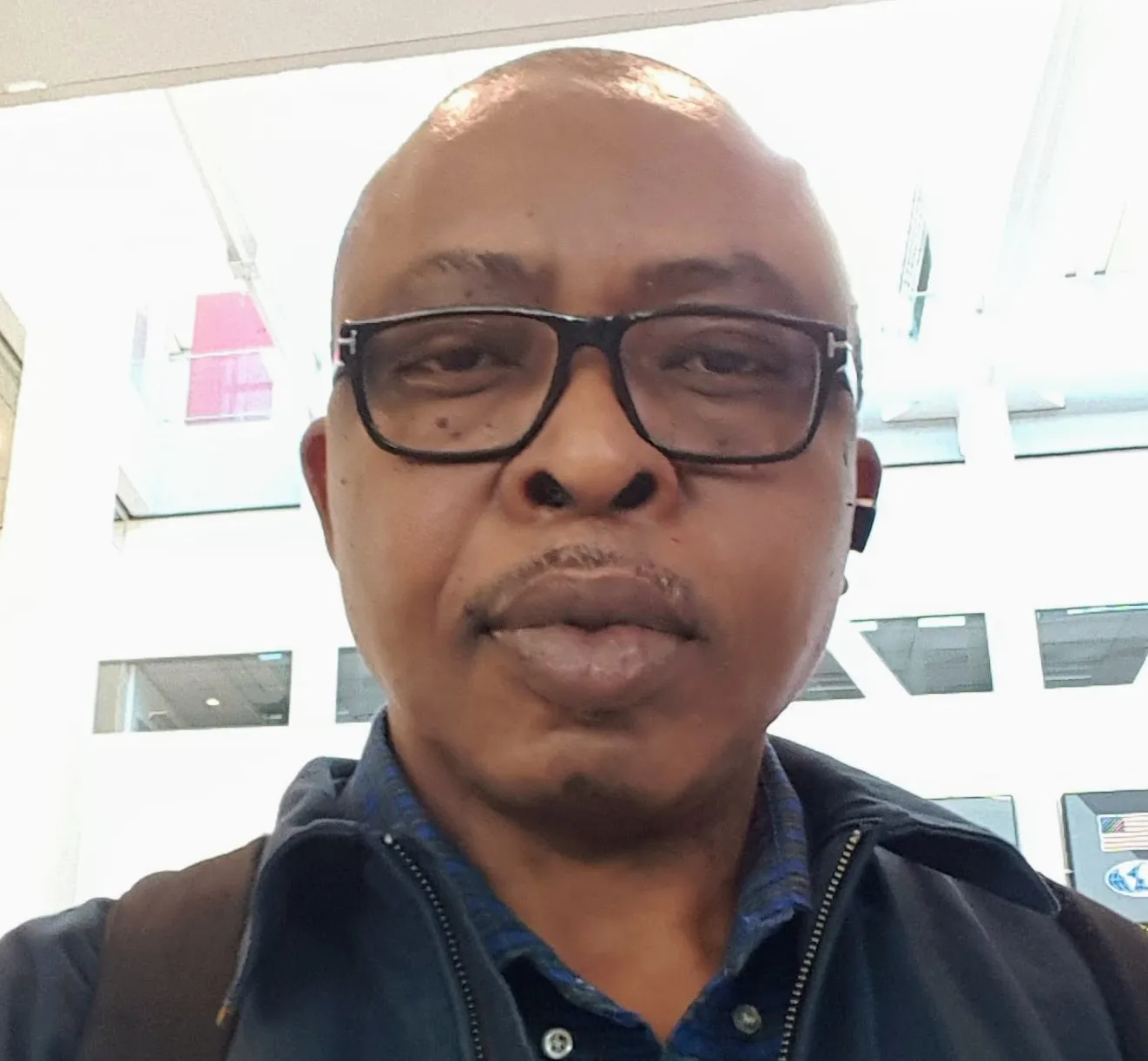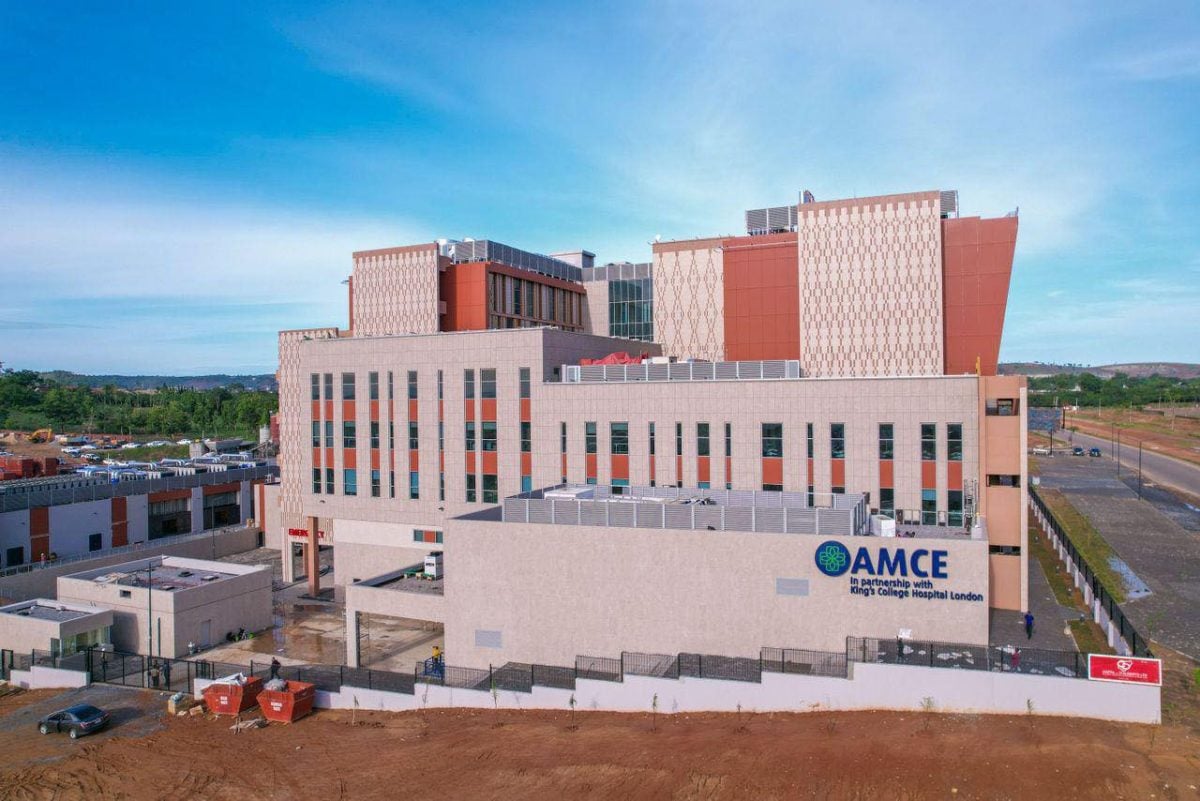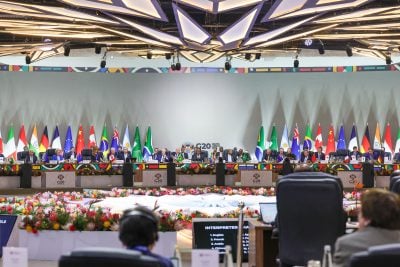The imposing building sitting at the edge of 6.5 hectares of land on the outskirts of the Nigerian capital, Abuja, is the site of a new experiment in reverse medical tourism. Built at a cost of more than $300m, the African Medical Centre of Excellence (AMCE), which started operations on 5 June 2025, is a specialist hospital for non-communicable diseases such as cancers, cardiovascular diseases and blood disorders – including sickle cell anaemia, which is most common in African populations – and other conditions. It is the largest specialised private hospital in Nigeria.
Each year thousands of wealthy Africans flock abroad, mainly to Europe and America, to seek medical treatments not found at home. The African Export–Import Bank (Afreximbank) estimates that they spend $6bn to $10bn annually on such trips. Nigerians alone are estimated to spend at least $2bn annually on foreign hospital visits.
The AMCE project developed by Afreximbank in partnership with King’s College Hospital, London, is designed to reverse the prevalence of medical tourism and make locally available the medical services for which many flock abroad at great expense. First, by making available, locally, the top-notch medical services for which many flock abroad at great expense.
“We’ve recruited from all over the world the very best we can find,” said Brian Beaver, the chief executive officer of AMCE. “And as it turns out, the very best frequently were Nigerian doctors and nurses. No matter where we go, the best health institutions in the world, the top echelons, are filled with Nigerian doctors and nurses.”
As Nigeria’s health facilities deteriorated in the face of poor governance and inadequate funding from the mid-1980s, many of its best medical professionals began to emigrate abroad in search of better opportunities and professional fulfilment. The World Health Organization estimates that 2,000 doctors leave Nigeria every year for places like the US, the UK and Canada.
A life-changing experience
The idea of setting up a world-class hospital in Nigeria is rooted in the personal experience of Benedict Oramah, the president of Afreximbank. “In 2013, I had my own close call when I became seriously ill and was evacuated to King’s College Hospital in London, where a frantic battle to save my life ensued,” Oramah said at the launch. “Being here today is a testament to the power of cutting-edge medical research, clinical knowledge, and a solid healthcare ecosystem.” Oramah’s successful treatment at King’s sparked conversations with his doctor, Ghulam Mufti, and other officials of the hospital – conversations that culminated in the opening of AMCE in Abuja. The new medical centre is the first of several to be located in different regions of Africa, offering state-of-the-art medical treatments and research.
“This is what happens when African institutions confront African challenges with African solutions,” remarked Nigerian vice president Kashim Shettima at the ribbon-cutting event, where he represented President Bola Tinubu. “With the largest stem cell lab in West Africa and plans for a medical school, this Centre is more than a hospital, it is a place to heal the sick, and to train the future.”
Affordability in Africa
One major concern that came up among attendees was how affordable AMCE treatments would be. “Some of the care can be expensive,” conceded Beaver. “For the most part, we’re not treating malaria, we’re not treating typhoid. We’re treating very, very serious diseases. We’re not only treating sickle cell anaemia, but we’re also curing it permanently.”
Still, the board of directors of the hospital have set up a foundation to raise funds, primarily to subsidise patients and also to fund research, according to Beaver. That foundation raised $75m before the hospital saw its first patient. And there are more pledges from the pharmaceutical company Novartis, the Dangote Foundation and the Bill Gates Foundation.
The AMCE has a capacity of 170 beds, making it the biggest specialised, private hospital in West Africa dealing with cardiovascular diseases, oncology, haematology and other medical services. In addition, the hospital has 15 stem cell treatment isolation rooms, a 20-bed intensive care unit and five operating theatres. There are plans for expansion to 500 bed spaces.
The hospital will also be involved in research. Most pharmaceuticals currently sold across the world are based on North American and European genomes. The result is that pharmaceuticals are often “not optimised for the African genome,” said Beaver. “They need to be optimised and we’ll be doing those clinical trials here.”
As a partner, King’s College Hospital will serve as a clinical adviser to AMCE. The two organisations will share clinical protocols, with the medical professionals at the AMCE working directly with specialists at King’s College, particularly on cardiovascular and blood disorders, according to Beaver. They will also work together in research, exchanging knowledge from their findings.
Catalytic goal
“Our vision for the African Medical Centre of Excellence is not just to provide top-notch healthcare,” said Oramah, “but to serve as a catalyst for the transformation of the African health sector, making a bold statement to the world that Africa is finally taking its destiny into its own hands in healthcare sovereignty and global standards.”
Driven primarily by private funding, the AMCE has not only received funding from Afreximbank but has also received significant interest from other institutions. These include both the Bank of Industry and the Development Bank of Nigeria, as well as the state-owned oil company the Nigerian National Petroleum Corporation (NNPC).
“Today, we don’t just open a hospital,” noted CEO Beaver at the opening. “We launch a healthcare revolution for Africa.”
Want to continue reading? Subscribe today.
You've read all your free articles for this month! Subscribe now to enjoy full access to our content.
Digital Monthly
£8.00 / month
Receive full unlimited access to our articles, opinions, podcasts and more.
Digital Yearly
£70.00 / year
Our best value offer - save £26 and gain access to all of our digital content for an entire year!

 Sign in with Google
Sign in with Google 



